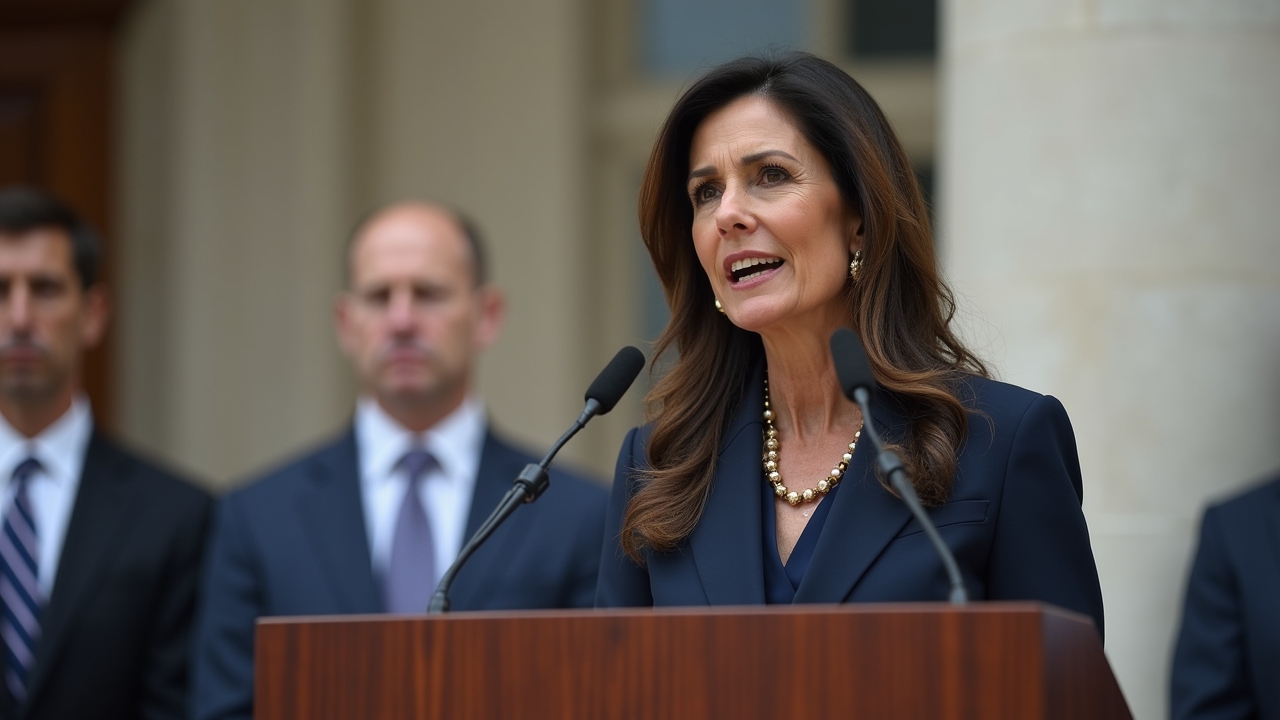PROTECT YOUR DNA WITH QUANTUM TECHNOLOGY
Orgo-Life the new way to the future Advertising by AdpathwayThe clash over the deployment of the National Guard in San Francisco marks another chapter in the ongoing tensions between state and federal authorities. The White House has pushed for California Democrats to invite the National Guard to restore order in a city grappling with rising crime rates. However, Governor Gavin Newsom strongly opposes this action, asserting it would “ruin one of America’s greatest cities.”
This disagreement highlights the broader narrative surrounding crime and public safety. White House spokeswoman Abigail Jackson stated, “America’s once great cities have descended into chaos and crime as a result of Democrat policies that put criminals first and law-abiding citizens last.” This assertion suggests a direct link between Democratic leadership in cities like San Francisco and the struggles they face with crime.
Meanwhile, the mayor of San Francisco, Daniel Lurie, emphasizes local efforts to strengthen public safety. During a recent briefing, he noted his commitment to rebuilding the ranks of public safety agencies and strategically deploying technology. “Since January, I have said that public safety is my number one priority,” he remarked, reflecting a proactive approach to crime prevention. Lurie pointed out that a recent tech conference attracted over 45,000 attendees without major incidents, suggesting that local measures are effective.
President Trump has pointed to success in other cities to bolster his argument for intervention in San Francisco. He referenced improvements seen in Memphis and Washington, D.C., where Democratic mayors have acknowledged federal assistance in boosting public safety. Trump stated, “The difference is, I think they want us in San Francisco.” His comments suggest that federal support is not only desired but can also restore order and safety, a sentiment that contrasts with Newsom’s fierce opposition.
Newsom’s retort, delivered via social media, dismissed the invitation of the National Guard, highlighting a strong local sentiment against federal intervention. “Fact check: Nobody wants you here,” he asserted, reinforcing his position that such measures would be detrimental rather than beneficial.
As tensions escalate, the dynamic between local initiatives and federal responses continues to unfold. Newsom has been critical of previous actions by the Trump administration, accusing it of “militarizing American cities.” However, he has also initiated state-level strategies aimed at tackling crime, such as deploying the California Highway Patrol to address ongoing issues across the state.
The juxtaposition of state efforts against federal interventions underscores a complex relationship between different levels of government. As mayors like Lurie celebrate local successes, the looming presence of the National Guard raises questions about the effectiveness of community-led initiatives versus federal authority in addressing urban crime.
In a broader context, this conflict reveals a stark divide in approaches to governance. While federal initiatives claim to restore safety in crime-ridden areas, state leaders argue that local solutions, rooted in community engagement and safety partnerships, can achieve the same goals without the need for military presence.
With Newsom preparing his defense against potential federal deployment, it remains to be seen how this standoff will impact public safety efforts in California’s largest city. As both sides navigate this contentious issue, the future for San Francisco hangs in the balance, illustrating the ongoing struggle between differing philosophies of governance and public safety.
"*" indicates required fields


 10 hours ago
3
10 hours ago
3


















.jpg)






 English (US) ·
English (US) ·  French (CA) ·
French (CA) ·